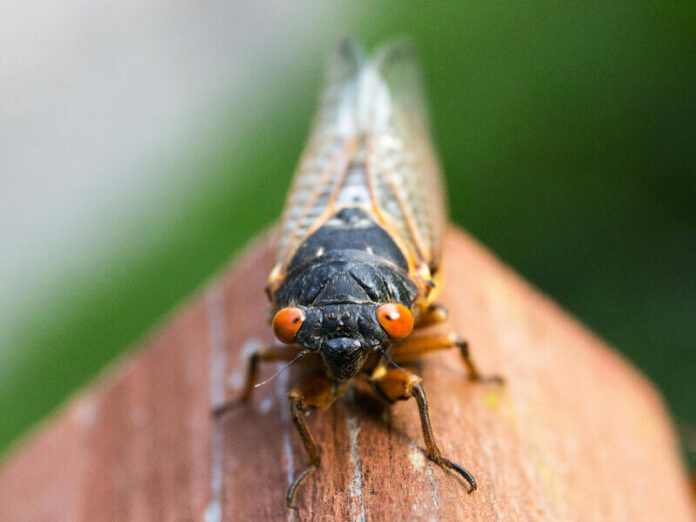While last spring brought a rare occurrence of 13-year Brood XIX and 17-year Brood XIII cicadas, 2025 will see Brood XIV take center stage. Here’s what to expect:
Brood XIV is the second-largest group of periodical cicadas and returns every 17 years. This year, they’ll tunnel out of the soil across much of Tennessee and Kentucky, with additional pockets in Georgia, Illinois, Indiana, North Carolina, Virginia, West Virginia, and even as far north as Long Island, New York, and Cape Cod, Massachusetts.
Their dramatic reappearance, like last year’s, is dictated by soil temperatures. University of Connecticut researchers say cicadas typically emerge when soil about four inches deep hits 64 degrees Fahrenheit — usually late April in the South and into May or early June farther north.
Once above ground, cicadas will be hard to miss. The males will crowd together in noisy groups, producing their signature buzz to attract females. After mating, females slice into tree branches to lay their eggs. The larvae that hatch will fall to the ground, dig in, and stay buried until 2042.
While 2025’s Brood XIV will be the only group to emerge, it’s still expected to arrive in huge numbers — potentially millions per acre. Fortunately, their stay is short-lived. Most adult cicadas survive just a few weeks, and the noisy emergence usually fades out by mid-June.
According to cicadiamania.com, the following counties are expected to see cicadas: Bledsoe, Blount, Campbell, Carter, Cheatham, Claiborne, Cocke, Coffee, Cumberland, Davidson, Grainger, Grundy, Hancock, Hawkins, Jefferson, Marion, Putnam, Roane, Robertson, Rutherford, Sevier, Sumner, Unicoi, Williamson. They also report that the first reported adult cicada was found in Nashville on 4/25.
Cicadas don’t bite or sting, but egg-laying can harm young trees. Experts advised against spring planting, or covering new saplings in mesh to keep cicadas off. With Brood XIV taking the spotlight this spring, experts and nature lovers alike will be watching — and listening — closely.
More info about cicada broods can be found on Cicada Mania.
Subscribe to our FREE Newsletter
















